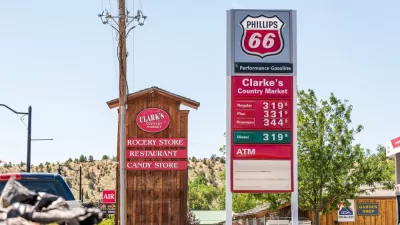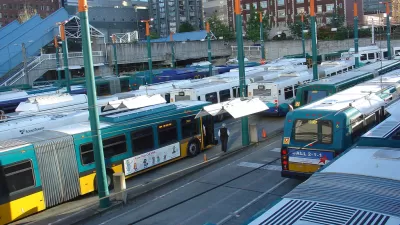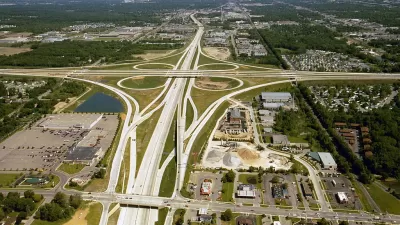Over the next decade, $1 billion will be spent to repair the state's deteriorating roads. Like many states unwilling to raise gas taxes, most will come from transfers from the general fund, though $41.4 million per year will be from car sales taxes.
Adam Beam writes that the two contentious aspects of South Carolina's new transportation bill are that it relies heavily on borrowing and that the amount is insufficient to address the state's transportation needs. In fact, the bill was written by state Senate Minority Leader Nikki Setzler, D-Lexington, as many of the governor's fellow Republicans objected to the borrowing.
The bill allows the Transportation Department to transfer $50 million per year of state surplus funds to the State Infrastructure Bank "to borrow at least $500 million to repair interstates and primary roads." The $41.4 million per year to repair secondary roads would come from reallocating half the state's auto sales tax revenue. "An additional transfer of $50 million in one-time money to repair bridges" would be used to accept up to $250 million in federal funds.
Beam writes that according to the state transportation officials, there will be a $29 billion deficit to address road repairs over the next 20 years. Business groups had been lobbying strongly for increased road funding.
The passage of the bill is significant. Two years ago the state's DOT was in dire financial straits and "had to turn to the federal government for its cash flow problem", as noted here.
Also in The State, Associated Press reporter Jeffrey Collins writes that the 16-cents a gallon state gas tax hasn't been raised since 1987. According to the Tax Foundation, the state has the 47th lowest gas tax in the U.S., though they will be #48 after July 1.
Wyoming, another red state with a 14-cent gas tax, will see a 10-cent increase after Gov. Matt Mead signed legislation last February. Upon signing, he stated that "... the state can no longer afford to subsidize the transportation department from general funds." Like South Carolina's business community, he noted that "the state's highway system is vital to economic development."
FULL STORY: SC Gov. Haley signs $1 billion roads bill

Alabama: Trump Terminates Settlements for Black Communities Harmed By Raw Sewage
Trump deemed the landmark civil rights agreement “illegal DEI and environmental justice policy.”

Study: Maui’s Plan to Convert Vacation Rentals to Long-Term Housing Could Cause Nearly $1 Billion Economic Loss
The plan would reduce visitor accommodation by 25% resulting in 1,900 jobs lost.

Planetizen Federal Action Tracker
A weekly monitor of how Trump’s orders and actions are impacting planners and planning in America.

Waymo Gets Permission to Map SF’s Market Street
If allowed to operate on the traffic-restricted street, Waymo’s autonomous taxis would have a leg up over ride-hailing competitors — and counter the city’s efforts to grow bike and pedestrian on the thoroughfare.

Parklet Symposium Highlights the Success of Shared Spaces
Parklets got a boost during the Covid-19 pandemic, when the concept was translated to outdoor dining programs that offered restaurants a lifeline during the shutdown.

Federal Homelessness Agency Places Entire Staff on Leave
The U.S. Interagency Council on Homelessness is the only federal agency dedicated to preventing and ending homelessness.
Urban Design for Planners 1: Software Tools
This six-course series explores essential urban design concepts using open source software and equips planners with the tools they need to participate fully in the urban design process.
Planning for Universal Design
Learn the tools for implementing Universal Design in planning regulations.
Caltrans
Smith Gee Studio
Institute for Housing and Urban Development Studies (IHS)
City of Grandview
Harvard GSD Executive Education
Toledo-Lucas County Plan Commissions
Salt Lake City
NYU Wagner Graduate School of Public Service





























